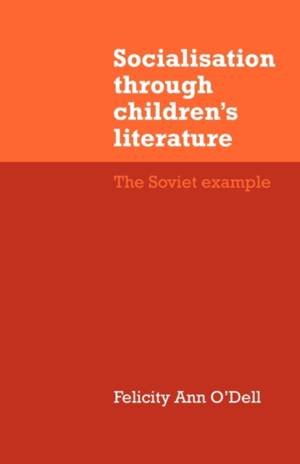
Bedankt voor het vertrouwen het afgelopen jaar! Om jou te bedanken bieden we GRATIS verzending (in België) aan op alles gedurende de hele maand januari.
- Afhalen na 1 uur in een winkel met voorraad
- In januari gratis thuislevering in België
- Ruim aanbod met 7 miljoen producten
Bedankt voor het vertrouwen het afgelopen jaar! Om jou te bedanken bieden we GRATIS verzending (in België) aan op alles gedurende de hele maand januari.
- Afhalen na 1 uur in een winkel met voorraad
- In januari gratis thuislevering in België
- Ruim aanbod met 7 miljoen producten
Zoeken
€ 64,95
+ 129 punten
Uitvoering
Omschrijving
This 1922 publication asks the following questions regarding the nature of Soviet socialisation: how different are Soviet moral values from our own; how do their processes of socialisation differ from those we know in the West; could we learn from the Russian educational system; or are Soviet children simply indoctrinated with the beliefs of their political leaders? Felicity O'Dell analyses the moral content of the stories read by Russian primary school children and asks what values are taught and how they reflect ideology. She also looks at popular children's magazines and the way writers have portrayed the world for children in the USSR. The author asks how successfully the educational process instils the values of Soviet socialism. She documents how closely children's literature mirrors the development of Russian society, and draws conclusions relevant not just to the nature of Soviet society but also to the Western method of raising children.
Specificaties
Betrokkenen
- Auteur(s):
- Uitgeverij:
Inhoud
- Aantal bladzijden:
- 290
- Taal:
- Engels
- Reeks:
- Reeksnummer:
- nr. 25
Eigenschappen
- Productcode (EAN):
- 9780521144377
- Verschijningsdatum:
- 24/06/2010
- Uitvoering:
- Paperback
- Formaat:
- Trade paperback (VS)
- Afmetingen:
- 140 mm x 216 mm
- Gewicht:
- 371 g

Alleen bij Standaard Boekhandel
+ 129 punten op je klantenkaart van Standaard Boekhandel
Beoordelingen
We publiceren alleen reviews die voldoen aan de voorwaarden voor reviews. Bekijk onze voorwaarden voor reviews.









